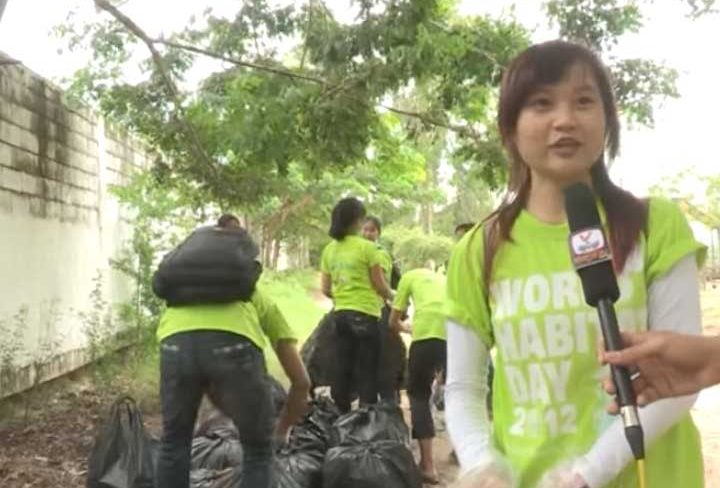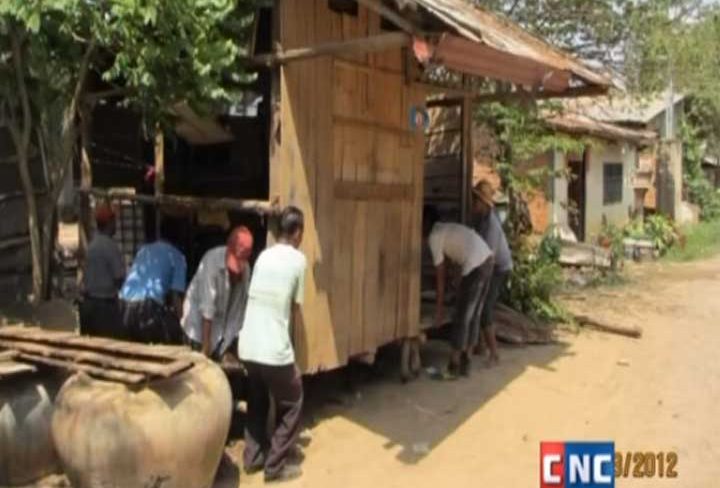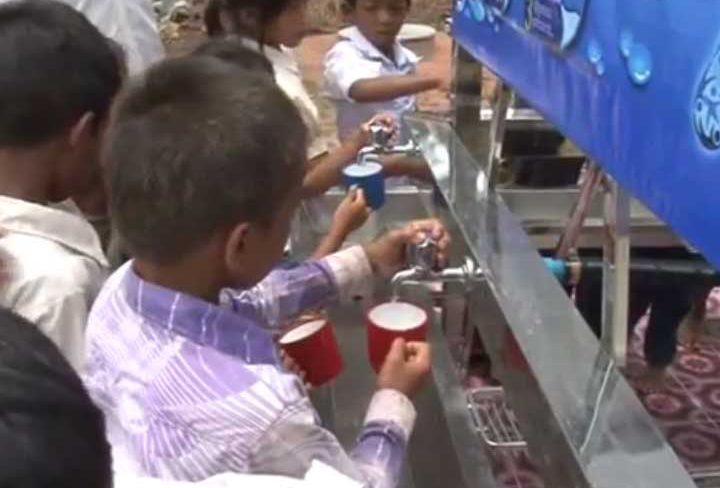
Yob Yoy’s Wish
Yob Yoy, 39, Bicycle repair at the daytime and Scavenger at the nighttime
Wife Keo Srey, 37 Housewife
Sons YI Sokha, 13, YI Sokhim, 11, YI Sok han , 9, YI Sopheap, 6 and YI Sokhoan, 5
Daughter YI Chansopheap, 7 months
Yob Yoy constantly struggles in agitation when he leaves his wife and six children in their rented house to scavenge in the city center every night. Their neighborhood is not safe. There are usual conflicts and violence within families and between neighbors brought about by drugs and alcoholism. But, he does not have a choice.
“I usually make it home by 12:00 or 1:00am and I spend my mornings helping out my wife, who just gave birth, with house chores and in the afternoon I repair bicycles at home; this gives us a little extra for our daily living,” he said. After dinner, he starts to prepare the rubbish cart and sacks and sets off to the main areas of Phnom Penh to scavenge.
Yi Sokhoan attends kindergarten school near by their community. His four elder children – Sokha, Sokhim, Sokchan and Sopheap – would sometimes walk 3 kilometers from Preak Toil Village to Phoum Reousey Primary School and leave at 6: 30 am just to save on transportation. They are also under Pour un Sourire d’Enfant’s (PSE) study program where they are provided transportation, food, clothing, study materials, and other school fees. However, their financial condition requires them sometimes to help their father in picking waste at night. This highly affects their studies. Yob Yoy admits, this is not something he wishes his children to go through, but he simply does not have a choice.
Yob Yoy earns 30,000 Riels (7.50USD) on regular days, but their earnings drop to 20,000 Riels (5.00USD) per day during rainy season.
The community they live in is situated on a low land level. They always experience flooding in the rainy season because there are no sewage and drainage systems. The houses are densely located with each other and recycling materials are scattered around the area. Amidst the chaos, theirs stands a hut that is a 4m x 5m that houses Yoy, his wife and their 6 children. Their house is made of scraps of palm trees and small rotting wood. An old tent covers some parts of their wall and some old pieces of plywood – rainwater easily leaks through their walls – and the floor is made of pieces of bamboo and wood. The houses do not have toilets. There are 4 communal toilets for the community people’s use, but the toilets are dirty and simply unsafe; families then opt to go to the field behind their houses to defecate. There is no safe water system from the state. Yob Yoy’s family spends 2,000 Riels to buy one big jug of water from a private supplier.
For the size of 4m x 5m of land, their family pays 80,000 Riel (20USD) per month for rent. They are in constant fear of eviction, as their landlord has plans to develop and he uses this to his advantage by demanding increase in rent and restraining them from connecting with state water.
Housing and education critically intersect in the lives of low-income people like Yob Yoy and his family. Without the skills to secure a job, all family members – including his children – end up having to find ways to secure food, preventing children from going to school, weakening their overall health and safety.
The thought of moving to Smile Village uplifts Yob Yoy’s spirits. “I wish for my children to be able to focus on their studies and to be free from threats and the polluted environment we now live in. Moving to the Smile Village will give my family and me a better life. I will have peace in my mind and in heart, and we will be able to start saving.”




